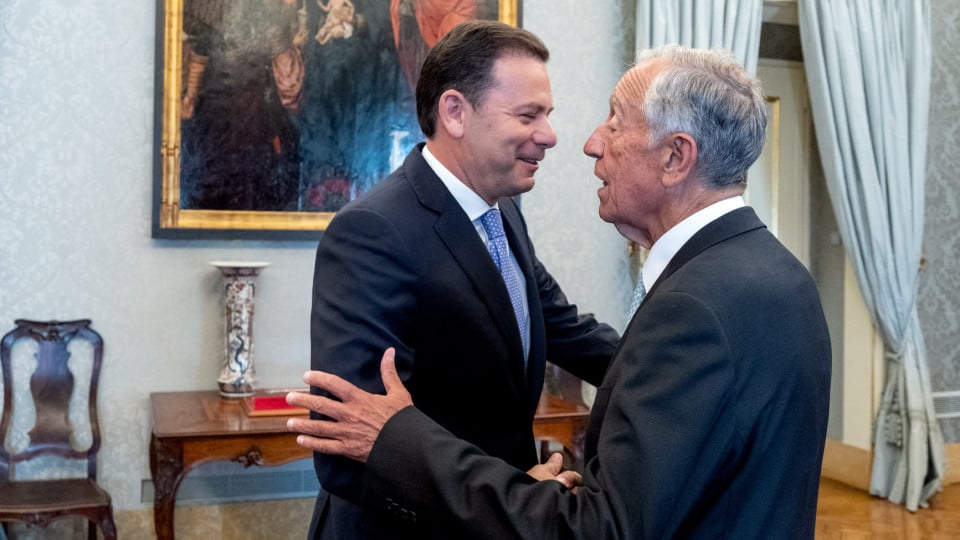The President of the Republic today defended the advances in the role of women in Portugal since April 25, expressing his conviction that they are set to last because they are the subject of strong consensus, and criticized the “nostalgic longers”.
Marcelo Rebelo de Sousa took these positions during a lecture on April 25 at the Camões Secondary School in Lisbon, in which he did not want to comment directly on the book “Identity and Family – Between the Conscience of Tradition and the Demands of Modernity”, presented by former prime minister Pedro Passos Coelho on Monday.
In his opening speech, before the 800 or so students who filled the sports hall of this secondary school, the head of state said that it is important to remember the past, “so that there is no risk of them wanting to impose a dictatorship again”, and urged young Portuguese to mobilize for the renewal of democracy, warning that “dictatorships start with woolly feet”.
“It’s fundamental, every time someone comes up with ideas that are not accepted – not accepting gender orientation or political orientation or religious orientation or a different philosophical orientation – every time someone comes up wanting to establish open or hidden censorship, to say: attention, this may be a fashion in Europe and in the world, it may be a fashion in Portugal, but it’s a fashion that cannot jeopardize freedom and democracy,” he appealed.
Then, in response to a student who questioned him about the book “Identity and Family” and said he was frightened of possible reversals of rights due to the approach of some moderate right-wingers to the more radical right, Marcelo Rebelo de Sousa maintained that “what has been achieved in terms of the role of women tends to last and, therefore, to have a future”, because it represents “such a strong consensus, so strong, so strong in majority terms”.
In her opinion, “one of the sectors in which there has generally been systematic progress” since April 25 in Portugal “is the role of women”, although there are still rights to be realized, such as equal pay for men.
“My conviction is that, although in a democracy it is theoretically possible to have parliamentary majorities that can change the law in one direction or another, the consensus that exists in Portuguese society – which is, moreover, a very sensible society – is a consensus in favor of the constant and lasting appreciation of the role of women,” she stressed.
During this speech, the President of the Republic declared himself “against xenophobia, racism, discrimination and closures” and in favor of Portugal remaining “an open country”.
Later, when asked by a student about the differences between xenophobia today and before April 25, he recalled that “there was a status of indigenous people” in the former colonies and asked: “When nostalgic people sometimes come along and say that going back to the past is wonderful, but what past? Which past? A past based on the exploitation of colonial labor? In not recognizing the minimum rights of people who are equal to everyone else?”
“Today, the problem with xenophobia is that there are people or sectors that don’t accept the differences of others: ‘I think this, you think that, I’m good Portuguese, you’re bad Portuguese, I have this religion, you don’t have a religion or you have another one, you’re bad Portuguese, I think you have a position on this matter of sex or gender, you have another one, you’re not a person who corresponds to the Portuguese ideal’,” he said.
The head of state rejected the idea that “there are the good Portuguese, faithful to their roots, to history, to the tradition of the empire, to what has come down through the centuries, and then there are those who are not good Portuguese”, saying: “There is no such thing, nor will there ever be again. I don’t know if you understand. But it’s a trend that’s taking hold in Europe, the United States and the world: hypernationalism.”
“But ‘we’ve always lived here’, who? Is any Portuguese pure? When humanity came from Africa – it’s proven. Are there any pure Europeans? Portuguese who are a mixture of everything, Greeks, Romans, Carthaginians, Phoenicians, Nordics, Africans, Latin Americans, this, that,” he continued.
“It’s good that we don’t want to resurrect what never existed, shouldn’t have existed, doesn’t exist today and won’t exist in the future,” he concluded.
Marcelo Rebelo de Sousa asked young people to fight against these ideas, so that they don’t appear to be winning in public opinion. “People sometimes lose track of the relativity of things,” he observed.
Another student insisted that he comment specifically on the book presented by Passos Coelho and the words of the former PSD president, but the head of state argued that he shouldn’t “put himself at the level of party struggles, personal prominence, personal or party political projects of the present or the future”.
IEL // PC









